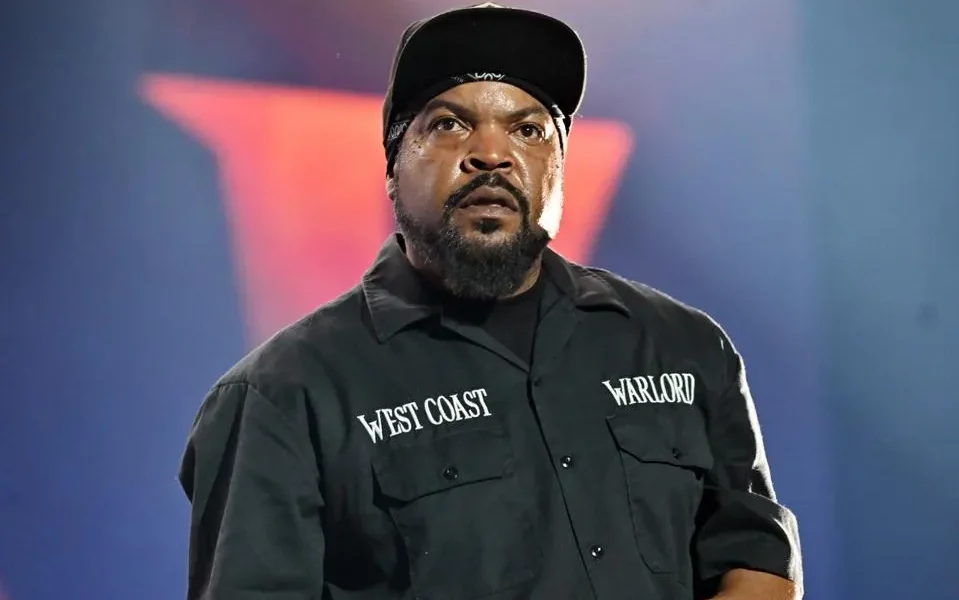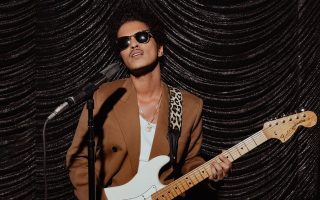ist-pasion.com – O’Shea Jackson Sr., better known by his stage name Ice Cube, is one of the most influential figures in hip-hop and American pop culture. Born on June 15, 1969, in Los Angeles, California, Cube’s career has spanned over three decades, during which he has made significant contributions as a rapper, actor, producer, and entrepreneur. Initially rising to fame as a founding member of the groundbreaking group N.W.A., Ice Cube became known for his hard-hitting lyrics and unapologetic commentary on racial inequality, police brutality, and the harsh realities of urban life. His influence extended far beyond music, as he became a major force in Hollywood and a key figure in shaping the landscape of hip-hop.
Early Life and Introduction to Hip-Hop
Ice Cube was born in South Central Los Angeles, where he was exposed to the challenges of living in a tough urban environment. Raised by his mother, Doris, and his father, Hosea, Cube was influenced by the music and social struggles of his community from a young age. He attended George Washington Preparatory High School, where he began rapping as a way to express his experiences and frustrations. His early rap skills were influenced by groups like The Fat Boys and LL Cool J, and his storytelling ability became evident early on.
Cube’s career took off when he joined the pioneering rap group N.W.A. in 1986. As the group’s primary lyricist, Cube was responsible for many of N.W.A.’s most controversial and politically charged tracks. His powerful writing on songs like “Straight Outta Compton” and “F*** Tha Police” helped define the group’s unapologetic approach to addressing systemic racism, police brutality, and life in the ghettos of Los Angeles. N.W.A.’s music resonated with young, disenfranchised listeners across the country and sparked conversations about race relations, censorship, and freedom of expression.
Leaving N.W.A. and Solo Career Breakthrough
Despite N.W.A.’s success, Ice Cube left the group in 1989 due to creative and financial disputes, most notably over royalties. His departure marked the beginning of his solo career, which would go on to rival his success with the group. His debut solo album, AmeriKKKa’s Most Wanted (1990), was a critical and commercial success. Produced by The Bomb Squad, known for their work with Public Enemy, the album showcased Cube’s ability to craft politically charged, hard-hitting lyrics over innovative beats. Tracks like “Endangered Species (Tales from the Dark Side)” and “Straighten It Out” continued the themes of social justice and racial inequality that defined his work with N.W.A.
AmeriKKKa’s Most Wanted not only solidified Cube’s place as a solo artist but also marked a significant moment in the evolution of gangsta rap. Cube’s fearless critique of the American government, along with his sharp storytelling, made the album a landmark in hip-hop history. His next album, Death Certificate (1991), further explored these themes, with tracks like “Black Korea” addressing racial tensions and “True to the Game” reflecting Cube’s views on the gangsta lifestyle.
Expanding into Acting and Hollywood
As his music career flourished, Ice Cube began to branch out into acting. In 1991, Cube starred in the film Boyz n the Hood, directed by John Singleton, which explored the struggles of black youth growing up in South Central Los Angeles. Cube’s portrayal of Doughboy, a young man grappling with the challenges of gang violence and systemic oppression, was praised for its authenticity and emotional depth. The film was a critical and commercial success, and Cube’s performance helped to establish him as an actor with real range beyond his musical persona.
Cube’s acting career continued to rise, with roles in films like Friday (1995), a cult classic comedy he co-wrote and produced. The success of Friday led to sequels and solidified Cube’s place in Hollywood as both an actor and producer. His subsequent acting roles in films like Barbershop (2002), Are We There Yet? (2005), and Ride Along (2014) further demonstrated his versatility as an actor and his appeal to a wide audience. Cube’s success in Hollywood allowed him to cross over from being a controversial rapper to a mainstream movie star, solidifying his place in American entertainment.
Entrepreneurship and Activism
Beyond music and acting, Ice Cube has built an impressive entrepreneurial career. He founded the film production company Cube Vision, which has produced many of his films, as well as television projects like the hit series Big3, a professional basketball league he co-founded in 2017. Cube’s business ventures extend beyond entertainment, as he has also been involved in various endorsement deals, merchandise, and even cannabis advocacy.
Cube has also been a vocal advocate for social change. Throughout his career, he has used his platform to address issues such as police brutality, racial inequality, and the struggles faced by working-class Americans. His role in the 2020 presidential election, when he developed the Contract with Black America, a detailed list of policy proposals aimed at addressing systemic issues affecting black Americans, highlighted his commitment to activism and social justice.
Continued Musical Relevance
Even as Ice Cube’s career expanded into acting and business, he remained a prominent figure in the music world. He released several successful albums throughout the 1990s and 2000s, including Lethal Injection (1993), War & Peace Vol. 1 (1998), and Laugh Now, Cry Later (2006). While Cube’s musical output slowed as his Hollywood career took off, his legacy as one of the founding figures of West Coast hip-hop remained intact.
His 2010 album, I Am the West, demonstrated that Cube still had a powerful voice in hip-hop. With a blend of political commentary, street stories, and reflections on his career, the album was a testament to his staying power as an artist and his ability to evolve with the times. Despite the changing landscape of hip-hop, Cube’s ability to address current issues and stay relevant in the genre ensured his place as one of the most enduring figures in rap history.
Conclusion: Ice Cube’s Lasting Legacy in Music and Culture
Ice Cube’s career is a testament to his versatility, resilience, and influence in both the music industry and beyond. From his early days as a founding member of N.W.A. to his groundbreaking solo career, Cube has played a central role in shaping the sound and culture of hip-hop. His unapologetic lyrics, commitment to social justice, and bold approach to addressing issues of race and inequality have made him a voice for the voiceless and a figure of immense cultural significance.
Cube’s success as an actor, producer, and entrepreneur has only added to his legacy, making him a multi-faceted icon whose influence extends far beyond music. Whether through his socially conscious lyrics, his role in Hollywood, or his business ventures, Ice Cube has proven that he is more than just a rapper—he is a cultural force whose impact will continue to be felt for generations to come.




